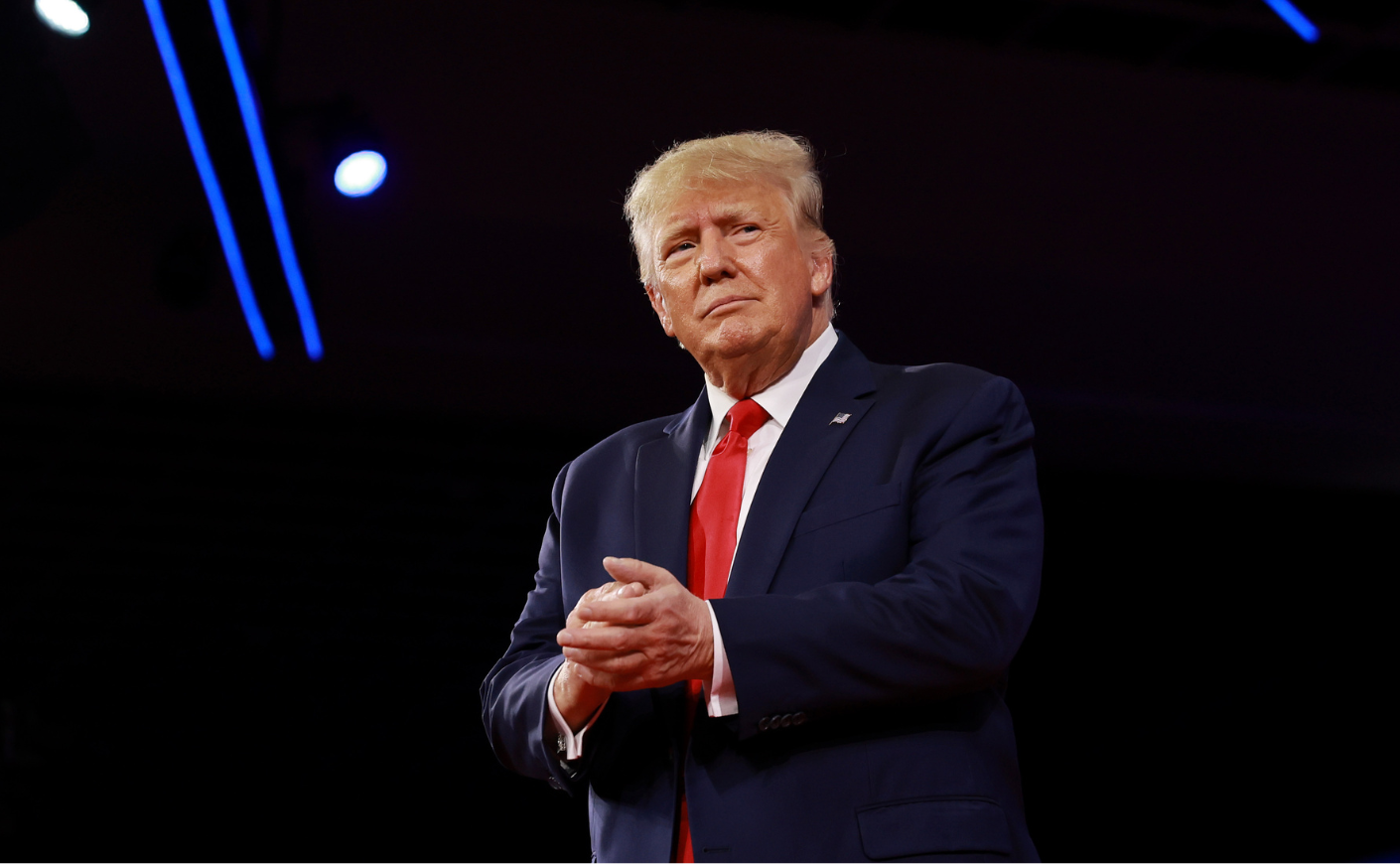Despite his many legal battles and criminal charges, Donald Trump has kept a tight grip on the Republican Party as their presidential nominee for the third election cycle in a row. And while most of the GOP establishment has returned to his corner yet again, there are still a few high-profile hold-outs.
A prime example is Mike Pence, who served as Trump’s vice president but said he wouldn’t endorse the GOP’s 2024 nominee. “Donald Trump is pursuing and articulating an agenda that is at odds with the conservative agenda that we governed on during our four years, and that is why I cannot in good conscience endorse Donald Trump in this campaign,” Pence told Fox News host Martha MacCallum on March 15.
Pence isn’t the only one to break rank and withhold his support. While the party has rallied around Trump in recent years, there are a small number of leading conservative leaders who haven’t backed the former president. We’ve compiled a list of some noteworthy former 2024 candidates, senators, and governors who have declined to fall in line behind Trump, despite mounting pressure to do so.
Former Vice President Mike Pence
Mike Pence is probably the most notable conservative leader to refuse to endorse Trump. Though he dutifully served the former president for four years, he’s been critical of Trump ever since the Jan. 6, 2021, insurrection. (As a quick brush-up: The former VP resisted Trump’s pressure to overturn his 2020 reelection defeat and was then targeted by a mob of his supporters who wanted to stop certification of President Biden’s electoral victory.)
The former VP went on to condemn Trump for his actions during the Jan. 6 attack during his own 2024 presidential campaign, and he has remained a vocal critic of Trump even after dropping out of the race in October. In his interview with Fox News, Pence said that he had “profound differences” with Trump on several issues, including national debt, abortion, and China, including Trump’s newfound opposition to a TikTok ban. But Pence stopped short of saying who he would back come November — he plans to keep his vote for president private, but maintained that he wouldn’t support President Joe Biden.
Utah Sen. Mitt Romney
Ongoing Utah Sen. Mitt Romney has stated that he would “absolutely not” support Trump in the 2024 presidential election, pointing to his character. What’s more, he hasn’t ruled out voting for President Biden in November.
“I think we agree that we have looked at his behavior, and his behavior suggests that this is a person who will impose his will if he can — on the judicial system, on the legislative branch, and on the entire nation,” Romney told NBC News.
Romney’s opposition dates back to Trump’s 2016 presidential bid, when the senator denounced him as a misogynist and a bully who posed a legitimate threat to the nation’s future. He later became the only GOP senator to vote twice to convict Trump at his impeachment trials.
Former Wyoming Rep. Liz Cheney
Ever since the Jan. 6, 2021, attack, former Wyoming Rep. Liz Cheney has become one of Trump’s most outspoken Republican critics. The ex-congresswoman has even gone so far as to call another Trump presidency an “existential” threat to democracy.
Ultimately, it was this fierce opposition that led her to lose her GOP House leadership position and then her seat in Congress. Now, speculation is growing about her next move. She has expressed interest in forming a “fully conservative” third party separate from Trump, and she also told The Washington Post that she would consider campaigning for Biden and against Trump-aligned candidates.
Alaska Sen. Lisa Murkowski
Alaska Sen. Lisa Murkowski hasn’t been shy about her opposition to Trump. She told NBC News in March that she “could not” vote for him, but she also said she wouldn’t cross party lines to support Biden.
This didn’t exactly come as a surprise — Murkowski has been a long-time critic of the former president. She previously admitted that she didn’t vote for him in 2020, and she was one of a tiny number of Republicans to support convicting Trump in impeachment the following year. Then just this past December, she slammed Trump’s remarks that immigrants were “poisoning the blood” of the country. “This is more hateful, harmful rhetoric from Donald Trump that is poisoning our country,” she wrote in a post on X.
Former Arkansas Gov. Asa Hutchinson
Former Arkansas Gov. Asa Hutchinson (another former GOP presidential contender) has roundly refused to back Trump. In an op-ed for USA Today, he wrote that the former president put ego “above the common good.”
Though he acknowledged voting for Trump twice before, he said that insight from Wyoming Rep. Liz Cheney’s book, Oath and Honor, and the Department of Justice’s indictment changed his mind about supporting the former president. “To this day, he continues to undermine our democracy by defending the actions of that dark day,” he wrote.
Maine Sen. Susan Collins
Maine Senator Susan Collins refused to endorse Trump in 2016 — and it looks like she will decline to do so again this year. In January, she told The Portland Press Herald that she couldn’t see herself backing the former president. “I do not at this point, no,” she said at the time.
As the top-ranking Republican on the Senate Appropriations Committee, she wields more power than you might think, and she has been a key figure in getting bills passed through Congress, including the $1 trillion bipartisan infrastructure bill that passed in 2021. She was also among just seven Republicans to vote to convict Trump for his role in the Capitol attack.
“This impeachment trial is not about any single word uttered by President Trump on Jan. 6, 2021,” she said at the time during a 16-minute speech on the Senate floor. “It is instead about President Trump’s failure to obey the oath he swore on January 20, 2017.”









